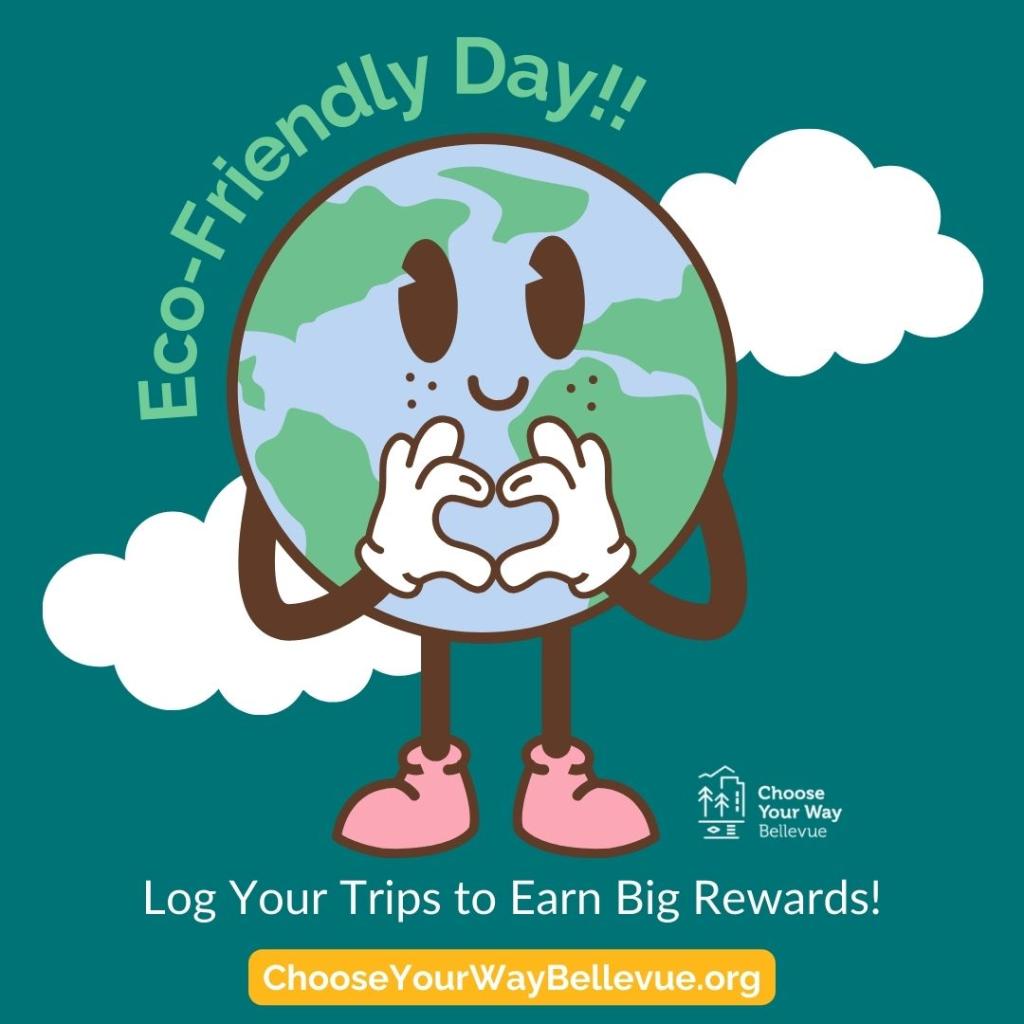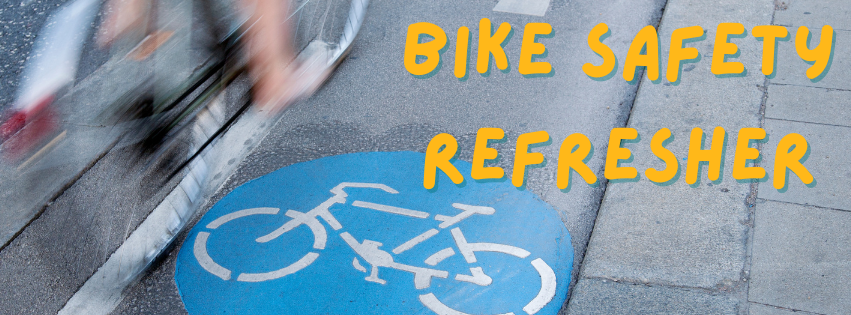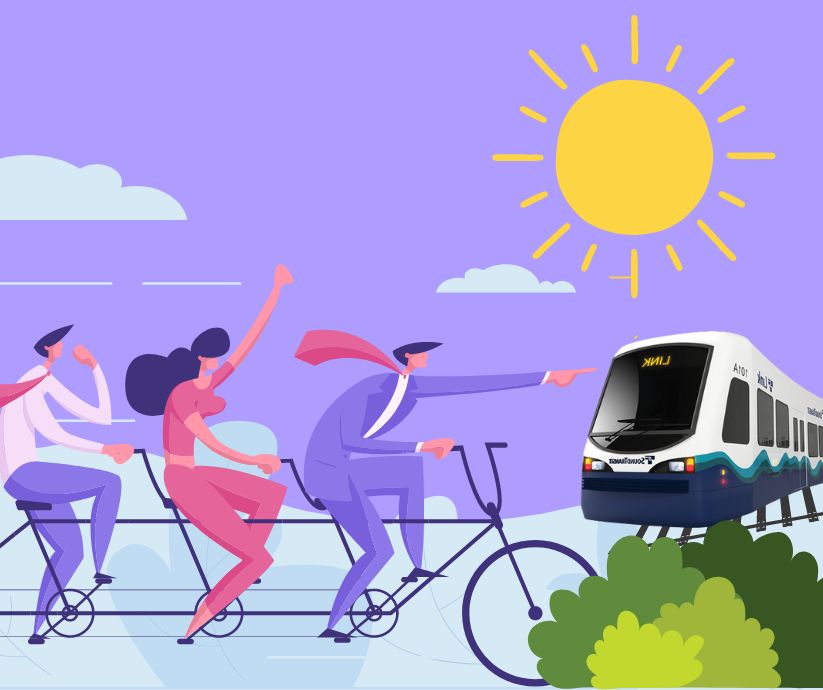Did you know the Park and Rides are a great way to visit Bellevue attractions sustainably? Watch for more information, and be sure to log your trips to earn rewards for non-drive-alone trips!
Posted on
Did you know the Park and Rides are a great way to visit Bellevue attractions sustainably? Watch for more information, and be sure to log your trips to earn rewards for non-drive-alone trips!
Posted on
Welcome back to our series, 2 Line GO! We explore different attractions, shopping, and nature experiences in Bellevue that you can access from the 2 Line. We hope you enjoy it! If you are a Bellevue business close to the 2 Line, email us at info@cywb.org if you want to be featured. We will do our best to highlight everyone who emails us!
Now enjoy Mercer Slough!
Posted on

Transportation Demand Management (TDM) uses strategies to inform and encourage travelers to maximize our transportation system’s efficiency, leading to improved mobility, reduced congestion, and lower vehicle emission levels. TDM aims to provide all people with transportation options that enable them to travel in an affordable, efficient, sustainable, and even more enjoyable way.
According to the Association of Commuter Transportation, some effective TDM strategies can include:
Governor Inslee has proclaimed September 16-20 as Transportation Demand Management Awareness Week! Part of the proclamation below states that “all residents are encouraged, when possible, to consider an alternative commute option and support local TDM initiatives within their communities to reduce congestion, reduce their carbon footprint and improve air quality...”

At Choose Your Way Bellevue, are proud to be working on TDM initiatives in Bellevue. We hope you join us in celebrating everything that TDM offers our city! Find more information on the Choose Your Way Bellevue program and how we can help you travel affordably, efficiently, sustainably and enjoyably at ChooseYourWayBellevue.org.
Posted on

With the August/September service change reflecting the new light rail lines and scheduling changes, you're probably wondering how transit routes running in Bellevue will differ. Here's a quick breakdown of what's happening.
2 Line South Bellevue-Redmond
Route 554 Issaquah-Seattle
Route 556 Issaquah-University District
Posted on
Welcome to our new series, 2 Line GO! We will explore different attractions, shopping, and nature experiences in Bellevue that you can access from the 2 Line. We hope you enjoy it! If you are a Bellevue business close to the 2 Line, email us at info@cywb.org if you would like to be featured. We will do our best to highlight everyone who emails us!
Posted on
In partnership with VisitBellevue and provider Circuit Bellhop has been providing electric shuttle rides in Bellevue. The pilot program has been running since August of 2023, but VisitBellevue recently announced that Bellhop is here to stay! It covers roughly six square miles in Bellevue (see map below) and will provides free 100% electric rides.
According to Circuit, 60% of vehicle trips are under five miles. Bellhop aims to help people get around without a car and reduce vehicle trips!
Hours Of Operation
Sun-Thur, 9 AM – 9 PM and Fri-Sat, 10 AM – 10 PM
EARLY COMMUTER EXPANDED SERVICE
The BellHop service is expanding to include a new weekday, on-demand morning service starting June 17th. This service is designed to accommodate early morning riders by providing direct transportation from Bellevue's Downtown Transit Station (Light Rail & Metro stations) to additional downtown stops, operating from 7:30 AM to 9:00 AM, Monday through Friday.
How to Use
To use Bellhop is simple – just download the Circuit App, make an account, and request a ride within the limits, and a driver will start making their way toward you! It's that easy.
Feel free to bring your children or four-legged friends too! For children, please note Circuit follows Washington state car seat and child passenger laws and does not carry a car seat. For pets, your furry friend must be seated on your lap or on the floor between your legs at all times.
Posted on

It's Ride Transit Month 2024!
Save some money, help the planet, and earn big by logging your trips!
Check out the challenge below and log your trips in June for a chance to earn a
$200 Gregg's Cycle gift card. It’s as easy as 1,2,3!
The more trips you log the more chances you have to win the Gregg's Cycle gift card. You can log in on your desktop or try our convenient mobile app for Apple and Google Play.
Log all your non-drive-alone trips. You will be able to qualify for our regular rewards program AND you will be entered to win a $200 Gregg's Cycle gift card!
Keep your eye on your email for messages from us and keep logging your trips!

Posted on
May is National Bike Month, and we have bikeable date ideas for you!
Is your date a foodie? Ride 5 minutes from downtown Bellevue to Whisk, 10385 Main St, to take a one-of-a-kind cooking class. After your unique dining experience, ride a short way to Bellevue Downtown Park to watch the sunset as you relax on the grass and listen to the waterfall for a romantic end to the evening.
Looking for a more adventurous date? Ride 7 minutes from downtown Bellevue to Meydenbauer Bay Park, 9899 Lake Washington Blvd NE. Park the bikes, rent a two-person canoe or kayak, and embark on a thrilling exploration of the bay together! After working up an appetite, ride back downtown for a well-deserved dinner and drinks.
Is your date's FYP cottage core? Visit Larsen Lake Blueberry Farm, 700 148th Ave SE. The farm, open March through September, offers a delightful array of fresh seasonal fruits and vegetables, cut flowers, and u-pick and frozen blueberries (the season is usually July through September). From Downtown, take Lake Hills Connector and SE 8th St for a 27-minute ride. After picking up your fruit and veggies, ride to Larsen Lake for a picnic, basking in the joy of your freshly picked produce, before heading back to city life!
Does your date love to connect to other cities via bike? Take them on an exciting, safe, beautiful bike adventure from Bellevue to Seattle, Kirkland, Redmond and more using one of the areas wonderful bike and pedestrian paths including the 520, I-90, Cross Kirkland Corridor or the 2 Line! In fact, we suggest taking the 2 Line to the BelRed Arts District to spot as many public art installations as you can find for a friendly competition!
For more information on sustainable travel options and how to log your travel for rewards, visit ChooseYourWayBellevue.org
Posted on

Whether you are new to biking or a pro, you can learn about bicyclist-related laws, safety tips, and your rights and responsibilities as a bicyclist at the Washington State Department of Transportation website.
Obey traffic signs and signals. Bicyclists must follow the rules of the road like other vehicles.
Never ride against traffic. Motorists aren't looking for bicyclists riding on the wrong side of the road. State law and common sense require that bicyclists drive like other vehicles.
Follow lane markings. Don't turn left from the right lane. Don't go straight in a lane marked "right-turn only."
If riding on a limited access facilities where bicycling is permitted, use the off and on ramps at interchanges.
Don't pass on the right. Motorists may not look for or see a bicyclist passing on the right.
Scan the road behind you. Learn to look back over your shoulder without losing your balance or swerving. Some riders use rear-view mirrors.
Keep both hands ready to brake. You may not stop in time if you brake one-handed. Allow extra distance for stopping in the rain, since brakes are less efficient when wet.
Wear a helmet and never ride with headphones. Always wear a helmet. Never wear a headphone while riding a bike.
Dress for the weather. In the rain, wear a poncho or waterproof suit. Dress in layers so you can adjust to temperature changes. Wear bright-colored clothing.
Use hand signals. Hand signals tell motorists and pedestrians what you intend to do. Signal as a matter of law, of courtesy, and of self-protection.
Ride in the middle of the lane in slower traffic. Get in the middle of the lane at busy intersections and whenever you are moving at the same speed as traffic.
Choose the best way to turn left. There are two choices: (1) Like an auto: signal to move into the left turn lane and then turn left. (2) Like a pedestrian: ride straight to the far side crosswalk. Walk your bike across.
Make eye contact with drivers. Assume that other drivers don't see you until you are sure that they do. Eye contact is important with any driver who might pose a threat to your safety.
Use a mirror so you know when drivers are behind you.
Look out for road hazards. Watch out for parallel-slat sewer grates, gravel, ice, sand or debris and pedestrians on the shoulder. Cross railroad tracks at right angles.
Use lights at night. The law requires a white headlight (visible from at least 500 feet ahead) and a rear reflector or taillight (visible up to 300 feet from behind).
Keep your bike in good repair. Adjust your bike to fit you and keep it working properly. Check brakes and tires regularly. Routine maintenance is simple, and you can learn to do it yourself.
For more information on sustainable travel options and how to log your travel for rewards, visit ChooseYourWayBellevue.org
Posted on
We have gathered specific resources in honor of May being Bike Everywhere Month and the 2 Line opening!
Bellevue Bike Map 2020 Download
The Bellevue bike map features updated citywide and close-in area maps, safety tips, helmet fitting tips, updated biking-supportive tools and resources, Washington state bike laws, and a frequent transit service map. Request a hard copy at 425-452-6856 or TRReception@bellevuewa.gov.
Station Access Map Download
The Move Redmond Station Access Maps will serve as a resource for everyone looking to access light rail without the need for a car. They offer safety information, highlighting areas of caution, such as busy intersections, with turning vehicles, and identifying steep grades that may pose challenges for wheelchair users. The printed version includes information on how to reload your ORCA card, use BikeLink Lockers, and schedule a community van ride. Please visit one of our many events or contact us to pick up a printed version.
How-tos and rules provided by the City and our regionwide partners:
Cascade Bicycle Club city riding and bike maintenance classes for adults
Washington state bike laws and safety tips
How to load a bike onto a King County Metro bus
Helmets are still required in Bellevue per Bellevue City Code 11.60.090
Sound Transit has a how-to video while riding your bike.

Bike Park and Ride
There are several options on how and where to park your bike and connect with the 2 Line. For more information, visit the bike parking page on Sound Transit. (The information below is from the Sound Transit website.)
Bellevue Downtown Station has on-demand bike lockers, a bike room, and racks.
BelRed Station has bike racks.
East Main Station has on-demand bike lockers and racks.
Overlake Village Station has on-demand bike lockers and racks.
Redmond Technology Station has on-demand bike lockers and racks.
South Bellevue Station has a bike room and racks.
Spring District Station has on-demand bike lockers and racks.
Wilburton Station has on-demand bike lockers and racks.
Also, Eastgate Park-and-Ride, where you can access bus routes, has on-demand bike lockers.
Showers
Looking for a spot to shower? Check out nearby fitness centers that offer shower-only memberships. (Many do!)
For more information on sustainable travel options and how to log your travel for rewards, visit ChooseYourWayBellevue.org